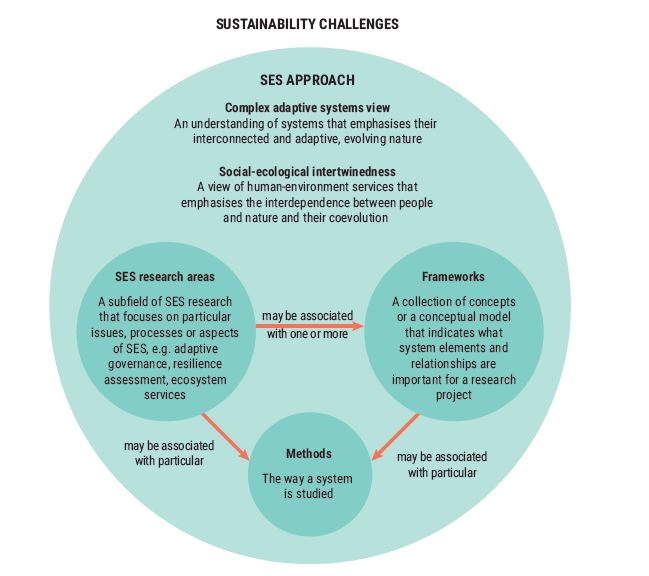BOOK: The Routledge Handbook of Research Methods for Social-Ecological Systems
Edited by Reinette Biggs, Alta de Vos, Rika Preiser, Hayley Clements, Kristine Maciejewski and Maja Schlüter
The much-anticipated opus involving various members of the PECS Scientific Committee and the PECS community is out now: The Routledge Handbook of Research Methods for Social-Ecological Systems. The handbook provides a synthetic guide to the range of methods that can be employed in social-ecological systems (SES) research. It is devoted “to the SES researchers of the future” and contains a mix of methods, illustrations (see for example figure 1.1 below) and case studies.
“The great strength of this handbook is that, for the first time, the wide range of approaches that are currently being tried is presented together in one volume. Moreover, there is a real effort to relate the methods to one another, giving the researcher the capacity to select from a toolkit of methods as the research journey unfolds, allowing the researcher to follow problems through progressively denser and/or thicker contexts, and to revise research questions and methods as understanding of the problem domain changes.”
Frances Westley, 13 September 2020, in the foreword of the handbook
The book is primarily targeted at graduate students, lecturers and researchers working on SES, and has been written in a style that is accessible to readers entering the field from a va-riety of different disciplinary backgrounds. Each chapter discusses the types of SES questions to which the particular methods are suited and the potential resources and skills required for their implementation, and provides practical examples of the application of the methods. In addition, the book contains a conceptual and practical introduction to SES research, a discussion of key gaps and frontiers in SES research methods, and a glossary of key terms in SES research. Contributions from 97 different authors, situated at SES research hubs in 16 countries around the world, including South Africa, Sweden, Germany and Australia, bring a wealth of expertise and experience to this book.

Figure 1.1 The SES approach discussed in this book is grounded in an understanding of SES as intertwined, complex adaptive systems embedded in the biosphere. This understanding directly informs the frameworks and methods employed in different areas of SES research. (© Reinette Biggs)
Thanks to support from the USAID Resilient Waters Program, this handbook is open access.
